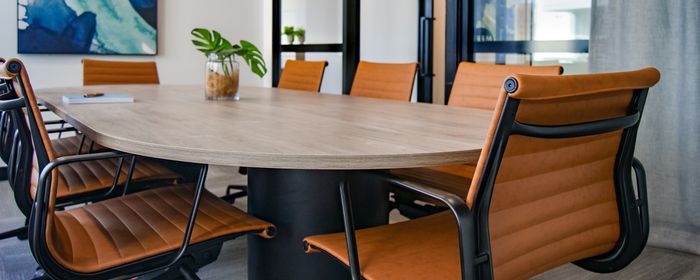
Anyone who has navigated the streets of a large city by car knows the angst of trying to find a parking spot, and that problem is only compounded for commuters who show up at their workplace to find the parking lot or garage is already full. Now what? This problem, along with the desire to build a sharing community, is the foundation of how and why Parkade was founded. Read on for the full interview with Parkade Cofounder Curtis Rogers to hear how the new remote work culture is affecting the parking industry.
Why did you start Parkade?
I previously worked at Lyft, and while I was there, another early employee named Evan Goldin and I noticed there were problems arising with the parking lot. The company had quickly grown from 250 to 500 employees, and the parking lot kept filling earlier and earlier in the morning. This was an issue for the employees that had to drive, especially the working parents. Simply asking everyone to be nice and share parking wasn’t working, so we took it upon ourselves to ask the CEO if we could manage the parking lot. He agreed and let us charge for parking, which is unheard of at a workplace. We were confident in what we were doing, had a plan, and had leadership behind us — and it worked! As a side project, we wanted to see if people would share or resell parking. We made a private Facebook group where you could post about an available spot, and we noticed immediately there was an opportunity for a marketplace.
What was the first product you launched with Parkade?
Fast forward a few years, and Evan and I are all-in on the idea of an app to sell and share parking. In 2019, we launched our first product for condo buildings, because we thought it would be a good fit for our v1, and a good first marketplace for us to test out. We’ve launched in several buildings in San Francisco and Austin, and have been thrilled at the response! Residents are able to instantly book parking, and condo owners can monetize their empty parking spaces.
How do you work with condo buildings and residents to ensure legality and compliance with HOA guidelines?
HOAs are complicated. Building managers are not sure how to interpret vague rules in their terms or conditions, but a lot of them recognize that the sharing and selling is already happening. Condos residents often use an email chain or group text to request or beg for parking, but there is no oversight. Parkade can offer staff transparency on all the parking transactions that are occurring. We can also add a commission to help fund the HOA. Most software or apps in this field comes at an upfront price to the condo building, but we can actually generate money for the HOA’s general fund. We enjoy being able to offer condos something for free and potentially create revenue for the building.
What is your biggest value proposition besides encouraging a sharing community?
The biggest factor is data for the building and ease of use for the user. Parkade shows booking data to the management, including how often the building is at or near capacity. Sharing already occurs between residents, but Parkade makes it faster for the users (no back and forth messaging), and the prices are usually far lower than the street or area garages.
How is COVID-19 affecting the parking industry?
Condos continue to exchange parking, but we are noticing a few changes, like longer bookings and slightly fewer reservations. We’re excited about our new product, which will help commuters returning to work. This wasn’t born out of the pandemic, but because Parkade is contact-free, we work well within the COVID rules. We are 100% virtual — you don’t have to talk to anyone, you don’t need to get a parking pass from another person, you don’t have to talk to a guard, you don’t have to touch buttons to open a gate, etc. We want to give offices a way to guarantee parking for people who don’t normally drive, so they know where to park before they depart home. COVID has created a lot of uncertainty in life, but there’s no reason office parking should add to that. We hope safe transit and shuttles come back, but we are worried that too many people are going to drive their personal cars to the office in the near term, and that could overwhelm a limited number of parking spaces. Our technology allows users to guarantee a parking spot, to better manage limited parking.
How do you see the effects of staggered schedules and remote work culture affecting parking density?
All workplaces are different, and each will approach a return to the office in a different way. We expect life science and manufacturing businesses will have more people coming back to the office versus a software company, which can more easily shift to working from home. Regardless, our solution works for every scenario. Even in a situation where a lot of people are working from home, there are still going to be people staggering their schedules to work from the office and they want to have confidence that they can get a parking spot when they need one. Visitors won’t be coming by as often as they used to, but you can still reserve a space if needed. We expect some companies to only make a few spaces reservable to begin, and some will assign the entire lot. It’s totally up to them, and every version will see value in the change.
There are also opportunities for sharing between buildings. For example, a software company might have parking to offer nearby companies that expect more people to return to work with personal cars. We can help the companies who are paying for those empty parking spaces make a little extra money back by temporarily selling to their neighbors. We expect to facilitate good synergy between multiple buildings.
In the Bay Area, what do you think is the future of public transit vs parking?
It’s hard to downplay the importance of transit, and cities need it to sustain the vibrancy of the urban environment, but now is a time when we will rely more on other modes, including personal cars and parking. We are proposing a new way to manage that precious resource, and Parkade can give companies data that shows how often your parking capacity is reaching its limit. Most cities force buildings to have a certain amount of parking to guarantee the company will never run out of spaces. We are able to track this and pass along better data that shows how often a garage or lot is reaching capacity. Our goal is that the companies will have enough data to say “we don’t need these extra 20 spots” and they can advocate for building something that is more productive than empty pavement, like housing. Some people say that COVID simply accelerated the change that was already occurring, and forced us into the future faster than we had anticipated, and I kind of agree. That is clear with the surge in work from home, and we expect commuting will have to adjust when people return to the office.
We witnessed a pause in construction during the 2008 recession, and I worry we could repeat that if the uncertainty causes the builders to slow down the rate of new housing starts. Even a quick pause means a housing shortage in five years, and that is the big concern. We hope that Parkade can show that buildings don’t need as much parking, which means we can build more housing or value-adds for a community, and take it full circle. Americans will continue to own cars and need parking, but we hope Parkade helps us not overbuild parking structures, so we can make better use of our land.




